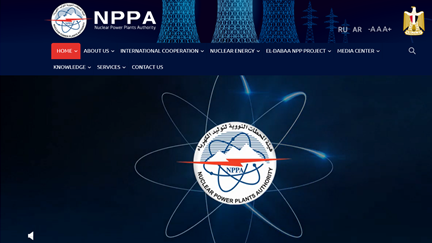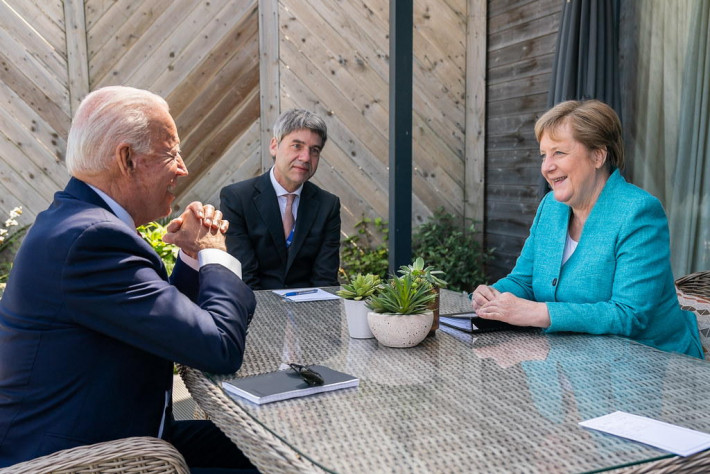July 24 (EIRNS) — Moscow-based American foreign affairs expert Andrew Korybko writes on his blog on the website of the Russian International Affairs Council (RIAC), that the ongoing settlement of the Afghanistan war is putting “geo-economics” ahead of the zero-sum game of geopolitics. He writes that “geo-economics” is at the center of the cooperation among the U.S., Russia, China and Pakistan in seeking an Afghan settlement and the creation of the so-called “Quad” of Uzbekistan, Afghanistan, Pakistan and the United States which was created on July 16 at the connectivity conference in Tashkent, Uzbekistan. This latter, Korybko writes, “complements the prior such platform between the former two states, China and Tajikistan back in 2016 as well as the Pakistan-Afghanistan-Uzbekistan (PAKAFUZ) railway project that was agreed upon in February.”
Crucial to the development according to Korybko is Pakistan’s new “Geo-Economic Grand Strategy Is Multi-Alignment,” which was adopted during March’s inaugural Islamabad Security Dialogue, where it was announced that geo-economics will now constitute the basis for all policy formulation and not geopolitics. The first fruits of the policy was the creation of the so-called Quad platform among Pakistan, Afghanistan, Uzbekistan, and the U.S.
Korybko writes: “Pakistan is actively fulfilling its geostrategic destiny as the ‘Zipper of Eurasia’” by connecting a variety of stakeholders through their shared economic interests. “Islamabad is leveraging its influence in Afghanistan to advance the neighboring country’s peace process, which saw it facilitate Beijing and Moscow’s incipient ties with the Taliban. Upon these multipolar great powers establishing pragmatic political relations with the group, they were then able to seriously countenance the viability of trans-Afghan connectivity corridors. Russia is interested in reaching the Indian Ocean Region through PAKAFUZ (which can also unofficially be conceptualized as N-CPEC+), while China is pioneering the so-called “Persian Corridor” to Iran via Tajikistan and Afghanistan. The U.S., meanwhile, aims to use PAKAFUZ as a means for expanding its economic influence in the post-withdrawal Afghanistan and the Central Asian republics (CARs).”
As for India, it is finding itself left out of the process, he writes, because it is maintaining a geopolitical policy aimed at countering Pakistan. Nonetheless, he believes now India has begun to seriously reassess its policy away from geopolitical principles, which of course will require an improvement of relations with Pakistan. One option would be reversing the August 2019 abrogation of Article 370 which dismantled the autonomy of Jammu and Kashmir to bifurcate the region, which would admittedly be a very difficult political decision.
He concludes: “The very fact that the U.S., which is known for its geopolitically driven zero-sum policies, is joining together with Pakistan, Afghanistan and Uzbekistan in order to expand its economic influence in Central Asia speaks to just how dramatically everything is changing.”
U.S. Dept. of Health and Human Services Brags It Used Diplomatic Pressure To Stop Brazil from Approving Russia’s COVID Vaccine
March 16, 2021 (EIRNS) — The annual report of the HHS’s Office of Global Affairs stated that they had “used diplomatic relations in the Americas region” to stop Russian and Chinese “vaccine diplomacy” in the region “to the detriment of US safety and security.” In the report, signed by Trump’s HHS Secretary Aznar, they pat themselves on the back about for having successfully used “OGA’s Health Attaché office to persuade Brazil to reject the Russian COVID-19 vaccine.” When questioned by TASS today, the Biden HHS repeated their adherence to that approach with the standard sophistry: “The United States is a firm believer in the need for vaccines that meet the minimum clinical standards of efficacy.”
Russia’s {RT} covered the story as a “bombshell admission,” noting that Brazil is currently sinking into an uncontrolled COVID crisis with a very small percentage of the population vaccinated. The article cited an expert at Moscow’s Gamaleya Institute, which developed Russia’s Sputnik V vaccine, saying that “we believe countries should work together to save lives. Efforts to undermine the vaccines are unethical and are costing lives.”
China’s {Global Times} published an article by editor Wang Wenwen which also pointed to the HHS admission that it used diplomatic pressure “to force Brazil, one of the worst-hit countries in terms of the COVID-19 pandemic, to reject the Russian coronavirus vaccine Sputnik V.” The editorial more broadly attacked, saying that “the West’s indulgence and zeal of the Cold War era is being manifested by its politicization of vaccines. The US, in particular, is practicing its very selfishness in vaccine distributions and exploiting vaccines as a geopolitical weapon, which, consequently, is dividing the world into two camps — one represented by countries inoculated with Chinese and Russian vaccines and the other with US and European vaccines.”
Europe is publicly lined up with the United States, Wang noted, but, “What is even more ironic is that the EU publicly dismissed Russia’s global vaccine supply, but has been turning to Sputnik V shots behind the scenes, according to media reports. Clearly, the EU cannot afford the self-invented geopolitical game involving vaccines.”
China’s approach is different, Wang argued. “Being a major power, China’s offer of vaccines to other countries is out of responsibility and morality without political attachment. That is why many countries welcomed and defended Chinese vaccines. If China’s influence expands, it is a natural outcome… Just imagine, if the global supply of vaccines is monopolized by the US, how many more people would die? Does the US care? The answer is clear.”
July 22, 2021 (EIRNS)–The Trains.com website comments that portions of the rail network in Western Europe could be out of service for months or years in the wake of flooding that has left hundreds dead across a swath of western Germany and Belgium. Rail service has been suspended after the floods, which saw rivers running three yards higher than previous records in some cases and destroyed homes and businesses. See report here.
In Belgium, most rail lines south of Brussels saw disruption, with many in the hilly Ardennes region seriously damaged. The high-speed rail line connecting Brussels with Cologne in Germany was briefly closed, but as this goes through hills and over valleys, it was not seriously damaged. Services restarted over the weekend. The older rail lines that follow river valleys, often no more than a few yards above the river, fared much less well. Several routes are so badly damaged that reconstruction is expected to take until late August; less damaged routes reopened July 19.
In neighboring Germany, where the scale of destruction and loss of life has been greater, some rail lines, again built following river valleys, have been completely washed out. In total, German national railroad Deutsche Bahn has reported that 600 kilometers (more than 370 miles) of tracks and 80 stations are impassable.
The worst affected route along the valley of the Ahr River from Remagen to Ahrbrück has seen around 12.5 miles of its 18-mile length destroyed by flood water, with all seven bridges destroyed where the line crossed from one side of the river to the other.
In the Ruhr region, the main station in the city of Hagen was flooded and closed, along with rail lines through the city, as were those in the nearby city of Wuppertal. The flood waters knocked out power and telecom services in many areas. In the city of Bonn, the electronic signalling center controlling the main rail lines along the Rhine valley was unable to function, due to flood damage. Countries neighboring Germany have also seen flooding, with the south of the Netherlands hit with large-scale disruption to rail and road travel. As the weather system moved on, flood waters have affected Switzerland and by last weekend the rain had moved east to Bavaria in Germany and the neighboring Czech Republic, with the rail line between Dresden and Prague shut down July 18 as the Elbe River burst its banks. The Elbe alley was the scene of massive flooding in August 2002, which closed the rail line for three months.
July 22, 2021 (EIRNS)–Hesham Hegazy, head of the nuclear fuel sector at Egypt’s Nuclear Power Plants Authority NPPA, has recently revealed that the Egyptian nuclear program is not limited to the construction of the Dabaa nuclear power plant, as the country seeks to build more nuclear power plants on the north coast, Al-Monitor reports.
Jamal al-Qalyubi, a professor of petroleum and energy engineering at the American University of Cairo, told Al-Monitor that the Egyptian state has been working since 2015 on a strategy to diversify its energy sources to address future challenges. He said that since the 1960s, Egypt has been heavily reliant on nonrenewable energy sources from hydrocarbons, such as petroleum, diesel and, more recently, natural gas. But the country is now looking to replace the plants that produce electricity via hydrocarbons with ones that rely on so-called renewable energy, in the framework of the Sustainable Development Strategy of Egypt Vision 2030, he said.
Qalyubi noted that nuclear energy is essential for Egypt, and that the state is seeking to have an educational and applied influence in this regard instead of only importing foreign technology. He added that nuclear reactors are beneficial not only in terms of power generation but also in terms of seawater desalination and the production of radioactive isotopes, which ultimately benefit Egypt’s industry.
He expects more Egyptian companies to contribute 20% to the construction of the new nuclear stations; local companies have already contributed 20% to the construction of the first unit of the Dabaa nuclear plant. These companies have managed to participate in the Dabaa project as they received training at the Dabaa Nuclear School in Matrouh governorate (west of Cairo), while educational missions are being sent to Russia, Qalyubi said, adding that such steps help promote Egypt’s local nuclear industry.
Former NPPA deputy head Ali Abdel Nabi told Al-Monitor over the phone, “The Egyptian government’s energy mix plan seeks to have the nuclear plants’ electricity generation to account for about 20% of the total production in Egypt by 2035.” He said, “Reaching this percentage requires the establishment of more nuclear plants, in addition to the Dabaa plant, which only produces 4,800 MW, or nearly 3% of the total electricity production.”
Abdel Nabi explained that one of the goals behind the establishment of nuclear plants in Egypt is the transfer and localization of the manufacturing technology into Egyptian factories, increasing their contribution to the manufacture of new plants to more than 50%.
“Nuclear plants provide electricity in much greater proportion than plants powered by gas or renewable energy such as wind, as these plants operate at 93% of the number of hours per year, compared to 27% for renewable energy plants and 56% for gas plants. In other words, nuclear plants serve the sustainable development goals better,” he noted.
Abdel Nabi pointed out that nuclear power plants are first-class investment projects, as they cover their costs within only 15 years of operation, and that their life span ranges from 60 to 100 years, which ensures greater benefit, unlike plants powered by gas, petroleum, and renewable energy, which operate for 25 years at most.
Ambassador Antonov on U.S. Media Fake News about Russian Foreign Policy –
July 21 (EIRNS) – In an interview with RT’s Rich Sanchez yesterday, Russian Ambassador to the United States Anatoly Antonov commented on his dismay at all the fake news in the U.S. media on Russian foreign policy. The entire interview is here.
Sanchez opened discussing Merkel and Biden’s decision to drop any opposition to Nord Stream 2, and then asked Antonov if he thought Biden’s insistence that Nord Stream 2 is “geopolitical” stemmed from his need to “save face” with respect to U.S. relations to Ukraine.
“I don’t understand what you are talking about. What kind of political interest United States administration has in Ukraine? Ukraine is too far.” He went on. “I discussed this issue with many politicians and sometimes, frankly, I’m not kidding… but some of them don’t know where Ukraine is! So I don’t understand why it’s so important for United States. It seems to me that some political figures, some politicians just only would like to use Ukraine as a tool to press on Russia, to change Russian independent foreign policy, or Russian economic policy. Or, as you, the United States call it, as ‘malign activities’ of Russian Federation on the international scene.”
Sanchez asked him about what Americans hear from the media, that Russia has expansionist ambitions, seizing Crimea, wanting to take over Ukraine, and what he thought about that?
Antonov replied: “You have touched a very interesting issue. Every morning when I wake up, I open American newspapers, and I switch on my TV…. And sometimes I am shocked to get so much fake news, fake information about the Russian foreign policy,” he replied. “What I see today, we see a lack of confidence, a lack of trust between the United States and Russia. I am trying to find a day when Russia has become an enemy or a rival for the United States, and it’s rather difficult to say when it happened. It seems to me that maybe ten years ago, but not when the Ukrainian crisis started, it goes without saying.”
Sanchez’s last question, “Is there a way to put our relationship back together again?” drew the following reply from Antonov: “We have to fix it, the Russian government and American administration as well. Because, to have good relations between the United States and Russia is in the interests of the United States people, as well as Russian Federation. I could say, we are doomed for cooperation,” he said, and then echoing President Putin’s January 2020 call for the P5 summit, he went on: “We are the main nuclear states. We are permanent members of [the UN] Security Council. We bear special responsibility for peace. That’s why we have no time to quarrel. We have to fix many problems that we face today. For example, fighting against terrorism, climate change, and … we see what is going on now in Afghanistan after United States’ decision to withdraw their forces from this country. I understand how much we have to do together.
“I would like to say, if anybody would like to create an island of security somewhere, in the United States, or in Europe, or in another continent, it will be a mistake. We can win together. When we are together, we can solve any issue, any problem that we face today,” Antonov concluded.
State Department Admits Sanctions Would Not Prevent Nord Stream 2—
July 21 (EIRNS) –In comments to the press yesterday, State Department spokesperson Ned Price reiterated President Joe Biden’s recent statement that the United States suspended its sanctions against Russia’s Nord Stream 2 pipeline project because they could hardly prevent the project’s completion. He explained that President Biden couldn’t have been any clearer when he met with Chancellor Merkel last week: “We continue to oppose Nord Stream 2. … We continue to believe it’s a bad deal for Germany, it’s a bad deal for Ukraine, it’s a bad deal for Europe and Europe’s broader energy security goals.” And, “of course in May we imposed sanctions on 19 entities and vessels, and at the same time … we have come to the conclusion … that it was not in our interest to significantly undermine … the relationship we have with our ally, Germany for a pipeline whose construction would continue, nonetheless.”
Price commented on reports by Bloomberg News that the U.S. and Germany were close to reaching an agreement on Nord Stream 2 that will reportedly include a provision that Germany will impose sanctions on Russia should Moscow use the pipeline to pressure Ukraine or engage in other “aggressive” behavior. “The Germans have put forward useful proposals…. That shared goal is ensuring that this pipeline cannot be weaponized against Ukraine, against any other European partner. That is our goal in doing so. I do expect we’ll be able to share more details on this today.”
State Department Counselor Derek Chollet arrived in Ukraine for discussions yesterday, and then headed for Poland which also opposes Nord Stream 2. According to Bloomberg, the draft agreement with Germany would seek to promote investments of as much as $1 billion in a so-called Green Fund to help Ukraine’s transition to cleaner sources of energy. Germany reportedly would commit to an initial $175 million investment in the fund, and would also appoint a special envoy—with $70 million of funding—to support bilateral energy projects with Ukraine.
Meanwhile, in a posting to his website, Senator Ted Cruz (R-TX) denounced the reports of an administration agreement, growling that, “If the reports and details of a deal are accurate, this will be a generational geopolitical win for Putin and a catastrophe for the United States and our allies. President Biden is defying U.S. law and has utterly surrendered to Putin.”
China-Russia Lunar Station To Be at South Pole, Will Start Unmanned
March 15 (EIRNS)—Xinhua published a report March 14 on the lunar research station planned by the China-Russia MOU signed March 9, which it characterized as “the fourth phase of [China’s] lunar exploration program, while implying it would be a prelude to, rather than part of, manned exploration of the lunar surface. Wu [Weiren] did say, though, that manned lunar missions are on China’s agenda”—the highest-level scientist to give that definite an answer to date. Xinhua took its coverage from an interview by China Space News with Wu Weiren, the chief designer of China’s lunar exploration program, member of the Academy of Engineering.
Three missions were named: lunar sample return by Chang’e-6, resource survey of the South Pole by Chang’e-7, and technology testing by Chang’e-8 in preparation for the construction of the station. These robotic landings are planned to take place in the next few years. Wu said that in the five-year period 2021-25, China will keep developing heavy launch vehicles and “achieve breakthroughs in rocket body sizes and engine thrust to support deep space exploration, in which the Moon is included. The implication is that once the three missions above are implemented, China will be engaged in studying manned landing at the South Pole “for a long-term lunar stay” at the site of the research station. The South Pole, which could have more than 180 consecutive days of sunlight, “would be highly convenient for astronauts carrying out scientific research,” Xinhua reported.
Wu is quoted: “If the lunar research station project can be successfully implemented, China will not be far away from achieving manned landing on the Moon.” And his message to young people was, “In the vast universe, I hope that more young people will dream, explore, and fight.”
July 20, 2021 (EIRNS)—Russian Foreign Minister Sergey Lavrov captured the potential world-transforming change which can be brought about, if the nations of the world join together in developing Afghanistan and the Central Asian nations, when he addressed the plenary session of the conference on “Central and South Asia: Regional Connectivity, Challenges and Opportunities” in Uzbekistan on July 16.
“The representative nature of this event is vivid proof of the increasing demand for a unification agenda in Eurasia and the rest of the world,” he began, in thanking Uzbek President Shavkat Mirziyoyev for organizing the conference. He situated the building of connectivity between Central and South Asia within the greater project of developing the giant continent of Eurasia as one “seamless, united logistical” economic hub of transportation, trade, power, development.
“Russia has been consistently in favor of forming the Greater Eurasian Partnership, a congregative integration contour in the entire space from the Atlantic Ocean to the Pacific, one that is maximally free for the movement of goods, capital, the workforce and services, and open, without exception, to all the countries of our common continent, Eurasia, and the integration unions created there, including the Eurasian Economic Union (EAEU), the Shanghai Cooperation Organization (SCO), and the Association of Southeast Asian Nations,” all organizations which have displayed an interest in this initiative, Lavrov explained.
“Implementing this long-term project will make it possible not only to accelerate the economic development of all participants but also to create a reliable material foundation of common security, stability and prosperity.”
He cited, in particular, the efforts which seek to integrate the EAEU plans and the Belt and Road project and “the North-South International Transport Corridor linking Europe, and the South Caucasus and Central Asia with the Indian Ocean coast, as well as to the Europe-West China transcontinental transport route.”
“In this broad context, higher connectivity between Central and South Asia is opening new vistas for the development of trade, economic and investment processes on the Eurasian continent….”
This will not happen without a comprehensive settlement of the Afghanistan conflict, he argued; “only direct and inclusive intra-Afghan talks with the support of international partners can lead to a lasting peace.” Lavrov named three “tried and tested mechanisms” as key to mobilizing that support: the Shanghai Cooperation Organization-Afghanistan Contact Group, and the two known as the “Moscow format” and the “extended Troika,” the latter formed by the US, Russia, China, and Pakistan working together.
When a reporter at Lavrov’s discussion with the press in Tashkent asked him if he thought the U.S. had deliberately carried out its withdrawal in such a way as to cause trouble in Russia’s “area of geopolitical interests,” Lavrov refused to take the bait. “I do not believe in conspiracy theories. I heard that perhaps this hasty withdrawal was in pursuit of some kind of geopolitical goals. We should not speculate about it.” Russia is “not interested in chaos” in Afghanistan, and “we will continue working with the Americans in the extended Troika format, as well as with all other countries that can influence the situation in Afghanistan,” he answered.
China National Nuclear Has Started Construction of `SMR’ —
July 18 (EIRNS) — China National Nuclear Corporation now has a small modular reactor “in the construction phase” after approval of its design by the International Atomic Energy Agency, according to articles in OilPrice.com and Global Times. The reactor is rated at 125 MW of power. The start of the construction phase is reported by OilPrice.com to have been delayed by four years after originally being scheduled in 2017. There is scant information in either piece as to the mode of construction or location of a factor to build units – the planned first reactor (“Linglong 1”) is perhaps the only unit to be located at the site, which is in Chiangjiang in Hainan Province in the south of China, a center of CNNC nuclear power production.
But the Global Times article contains an ambitious and accurate description of what fourth-generation small modular reactors will do: “Unlike 3rd-generation large reactors such as the Hualong 1, which has an electric power output of 1 million kilowatts, far greater than the power range of a small reactor, the Linglong 1 can realize the multi purposes of nuclear energy, such as heat supply for cities, industrial steam, seawater desalination, oil exploitation and other different needs, in addition to electricity generating. The energy generated by Linglong 1 can be applied to various scenarios such as industrial parks, islands, mining areas and energy supplied by high-energy consuming enterprises, meeting the development needs of Hainan.
`The Place Where These Rivals Can Work Together’: Afghanistan —
July 18 (EIRNS) – An interesting statement by Pakistan’s ambassador to China, Javid Ahmad Qaem, was quoted in Global Times July 17. “The only place,” the Ambassador said, “where the U.S., China and India could really cooperate, and at least there could be a starting point to cooperate between these rivals, if I can call them that, is Afghanistan.”
The same Global Times article which quoted Qaem made clear that China has proposed the Belt and Road Initiative – the Eurasia-wide infrastructure corridor development plan it initiated in 2013 – as the basis for cooperation in shifting Afghanistan from the theater of endless war and poverty to a nation developing and a contributor to stability. At the July 15-16 conference of 40 nations’ representatives in Tashkent, Uzbekistan on “stability and connectivity” in the region following the NATO withdrawals, “China urges Central and South Asian countries to forge a closer regional connectivity partnership through high-quality cooperation under the Belt and Road Initiative (BRI),” Global Times reported, not implying U.S. participation. A White House readout July 18 said only that A high-level US delegation led by Assistant to the President for Homeland Security, Elizabeth Sherwood-Randall met with Afghan President Ashraf Ghani at the international conference in Uzbekistan and discussed the evolving security situation in Afghanistan and the US support for the Afghan defense forces.”
The impression is given by many media accounts (leaving aside those that forecast the Taliban overrunning Kabul this week) that China and Russia are working with the Taliban on new regional security concepts while the United States and India try to meddle. Russia at least is, according to an Asia Times report July 15, preparing to move at the UN for the Taliban to no longer be designated as supporting terrorism, if that movement maintains peaceful relations with the Central Asian Republics and does not support either al-Qaeda or the East Turkistan Independence Movement (ETIM, Uiygur separatist terrorists). The Taliban have proposed friendly relations with China.
But the Afghan government has also made moves toward economic reconstruction potentials for the region, in anticipation of the NATO troops getting out. In February it agreed with Pakistan and Uzbekistan on a rail corridor from Peshawar, Pakistan to Kabul and Mazar-e-Sharif in Afghanistan to Tashkent, clearly linking to the China-Pakistan Economic Corridor and to the main Eurasian Land-Bridge rail corridor. It also discussed with Pakistan a highway in the same corridor but branching to Dushanbe, Tajikistan. And the Ghani government has started a 50 km gravel and asphalt road through the formidable Wakhan Corridor to the 5,000 meter-high Wakhjir Pass; it continued beyond it would be a rugged but short and direct route to China through Xinjiang Province.
Afghan consultant to Ghani’s office Shokrullah Amiri, writing in Global Times July 18, says that the Afghan and Chinese governments have been consulting since May on the Wakhan Corridor also becoming part of the Belt and Road Initiative (it was a part of the 12th Century Silk Road). This, said the Asia Times July 15 report, was why the Ghani government began on the road. Amiri has much more to say about the potential development of Afghan minerals and Afghan-China trade as a result. For more details, go here.


















